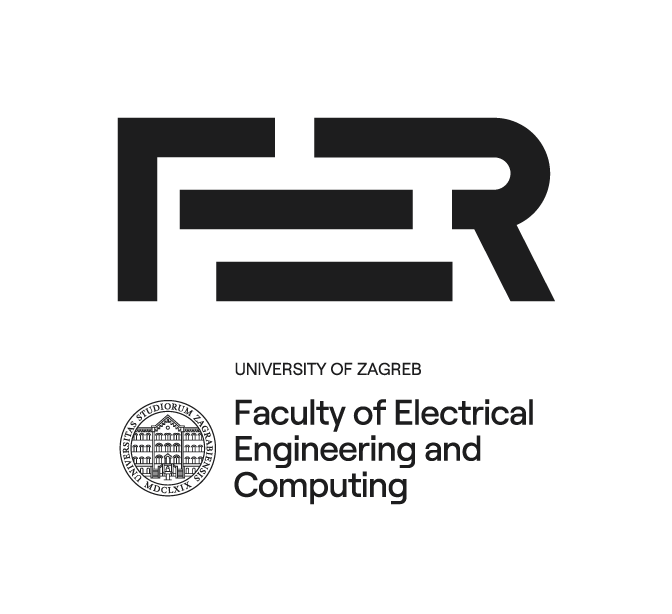University of Zagreb (UNIZG), Croatia
Dating from 1669, the University of Zagreb is the oldest Croatian university.
Today, it consists of 31 faculties and 3 art academies. With its comprehensive programmes, over 70,000 undergraduates, graduates and postgraduates students and over 8,000 teaching staff, the University of Zagreb is the strongest teaching institution in Croatia covering the following fields: Arts, Biomedicine, Biotechnology, Engineering, Humanities, Natural and Social Sciences. It is also a strongly research-oriented institution, accounting for over 50% of the total research output of Croatia.
Today, it consists of 31 faculties and 3 art academies. With its comprehensive programmes, over 70,000 undergraduates, graduates and postgraduates students and over 8,000 teaching staff, the University of Zagreb is the strongest teaching institution in Croatia covering the following fields: Arts, Biomedicine, Biotechnology, Engineering, Humanities, Natural and Social Sciences. It is also a strongly research-oriented institution, accounting for over 50% of the total research output of Croatia.
The EU-CORE study programme is within University of Zagreb performed in one of the faculty constituents of the University whose full legal name is University of Zagreb Faculty of Electrical Engineering and Computing (UNIZG-FER).
UNIZG-FER is the largest technical faculty and leading educational and R&D institution in the fields of electrical engineering, information and communication technology and computing in the Republic of Croatia. It roots from the Technical Faculty, founded in 1919. In 1956, the departments of Technical Faculty grew into four new faculties, Faculty of Engineering being one of them, and finally in 1994 it got its current laboratories. The Faculty today covers all major research frontiers in electrical engineering, information and communication technologies and computing.
The Faculty hosts more than 3400 students at all academic levels and has around 500 teaching and research staff. It has a very strong international orientation with several hundred international projects performed in which it collaborated with more than a thousand institutions around the globe. Yearly, it hosts more than 200 Erasmus students and currently it executes three Erasmus Mundus Joint Master Programmes, EU-CORE being one of them.
UNIZG-FER is the largest technical faculty and leading educational and R&D institution in the fields of electrical engineering, information and communication technology and computing in the Republic of Croatia. It roots from the Technical Faculty, founded in 1919. In 1956, the departments of Technical Faculty grew into four new faculties, Faculty of Engineering being one of them, and finally in 1994 it got its current laboratories. The Faculty today covers all major research frontiers in electrical engineering, information and communication technologies and computing.
The Faculty hosts more than 3400 students at all academic levels and has around 500 teaching and research staff. It has a very strong international orientation with several hundred international projects performed in which it collaborated with more than a thousand institutions around the globe. Yearly, it hosts more than 200 Erasmus students and currently it executes three Erasmus Mundus Joint Master Programmes, EU-CORE being one of them.


Most of the teaching on EU-CORE at UNIZG-FER will be covered by lecturers acting within the Laboratory for Renewable Energy Systems (LARES) and the Smart Grids Laboratory (SGL).
LARES is engaged since the early 2000s in the state-of-the-art R&D in the domain of energy and resources management in complex systems - wind farms, buildings, microgrids, electricity and water distribution grids, rail transport, automotive. Key methodological approaches in its R&D are optimal control and estimation techniques for linear and hybrid systems as well as machine learning.
SGL is primarily focused on research of the impact of renewable energy sources and distributed generation on the power system with increased flexibility demands, covering among others the use of energy storage units, electric vehicles and their charging stations, synchronized measurement units, aggregation of demand response, microgrid structuring and multi-generation systems. Both laboratories have a longstanding collaboration with industry.
LARES is engaged since the early 2000s in the state-of-the-art R&D in the domain of energy and resources management in complex systems - wind farms, buildings, microgrids, electricity and water distribution grids, rail transport, automotive. Key methodological approaches in its R&D are optimal control and estimation techniques for linear and hybrid systems as well as machine learning.
SGL is primarily focused on research of the impact of renewable energy sources and distributed generation on the power system with increased flexibility demands, covering among others the use of energy storage units, electric vehicles and their charging stations, synchronized measurement units, aggregation of demand response, microgrid structuring and multi-generation systems. Both laboratories have a longstanding collaboration with industry.

